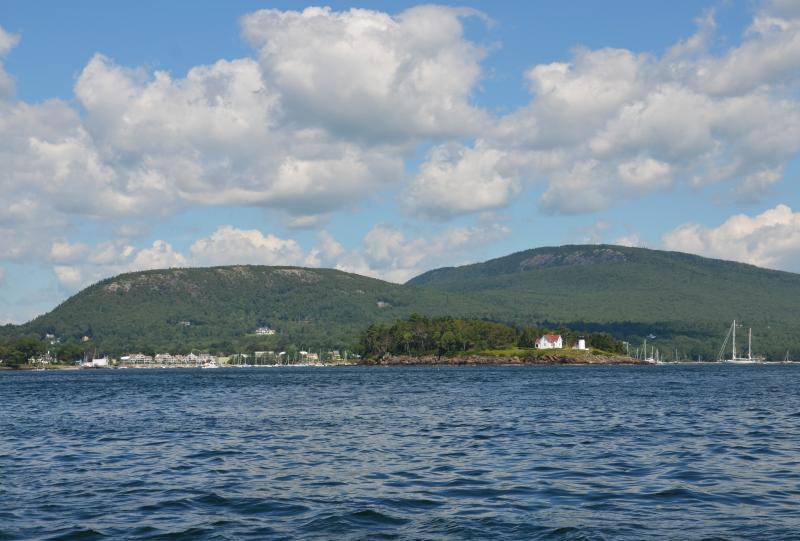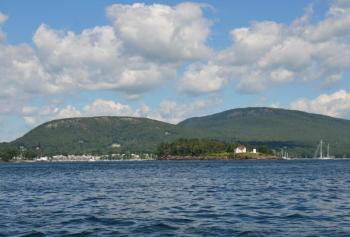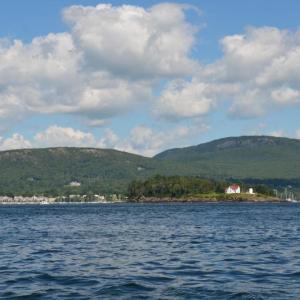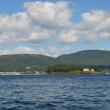Camden Planning, Select boards to review short-term rental regulations, harbor pier recommendations at joint workshop
CAMDEN — Two pieces of municipal business are due for attention Wednesday afternoon, June 28, when the Camden Select Board convenes with the Planning Board. There, Planning Board Chair Ethan Shaw will bring the town up to date on efforts to strengthen short-term rental rules, as well as town rules governing pier placement and construction in the outer and coastal portions of the Camden Harbor.
The meeting is a workshop, meaning no votes will be taken. The public will have opportunity to comment on both issues.
Short-term rentals (STR)
Like most Maine communities that draw seasonal visitors, the growth of short term rental housing units in Camden has been the focus of conversations for almost a decade.
More recently, the Planning Board was tasked with assessing effects of an increased short term rental market on Camden’s housing stock.
“The Planning Board has determined that the issues around STRs are significant enough that they warrant further review and regulations,” wrote Camden Planning and Development Director Jeremy Martin, in a memo to the Select Board concerning the workshop agenda.
Camden’s existing short-term rental regulations are minimal, said Martin.
In its STR report (see attached PDF for complete report), the Planning Board described negative effects of short-term rentals, including:
- The removal of regular single-family homes from the market (i.e., homes that would have otherwise been available for purchase by future year-long residents of our community, or that would be made available for long-term rentals) that are purchased for the sole purpose of creating short-term rentals;
- The worsening issue of a lack of workforce housing for those who want to live and work in our unique and beautiful community; and
- The incremental loss of character that occurs due to unregulated or inappropriately regulated short-term rentals, which negatively impacts neighborhood stability and cohesiveness.
But the Planning Board also recognized that property owners renting seasonal vacation space within their homes is a long-time practice in Camden. And the report said, the board is equally aware that STRs also compete with Camden’s multi-faceted lodging industry (inns, B&Bs, hotels).
The Planning Board is proposing several goals and objectives:
Goal: Increase the available housing stock of long-term rentals and/or properties offered for sale in the Town of Camden.
Objective: Address the proliferation of short-term rentals by minimizing the conversion of long-term rental properties into short-term rental properties resulting in a reduction of housing stock in the local market.
Goal: Ensure the safety of STR occupants and the public.
Objective: Create more robust requirements that ensure increased homeowner and tenant accountability through a more formal application, registration, monitoring, inspection and enforcement process for STRs in Camden.
Goal: Protect the Town’s sense of community and its desirability as both a renowned vacation destination and an attractive place to live and work.
Objective: Improve compatibility between STRs and established neighborhoods by limiting the potential for complaints, addressing complaints related to noise, parking and waste generated from STRs effectively.
Goal: Protect the traditional practice of Town residents offering their primary residences as seasonal vacation rentals themselves.
Objective: Differentiate between nonprimary un-hosted STRs.
Goal: Successfully address the current unequal playing field between Camden’s existing commercial lodging industry and unregulated short-term rentals.
Objective: Develop and implement a fair and equitable regulatory framework that increases the Town’s capacity to adequately monitor and enforce life safety standards for short-term rentals.
*********
Harbor Piers
At the June 2022 Annual Town Meeting, Camden voters approved a six-month moratorium on building new piers and structures in Camden’s outer and coastal harbor area. The moratorium did not apply to the inner harbor.
In March 2023, the Select Board extended the moratorium for another six months, giving the town a new deadline of September 2023 to create new rules governing pier siting and construction.
The moratorium had been proposed in the wake of applicant requests for new pier construction. Concern rose over the density of docks, floats and ramps in the harbor.
Following moratorium approval, Camden’s Harbor Committee was tasked by the Select Board with assessing and producing recommendations for the town.
The committee counted the number of piers in the Coastal Harbor No piers are on the northern side of the coastal harbor (facing Penobscot Bay) north of Northeast Point; three are on the southern Coastal Harbor (south of Curtis Island).
“Much of the Coastal Harbor is so rugged or deep that a pier is impractical; the topography of the area provides a de facto limit on the number of piers that could be constructed,” a Harbor Committee report said.
In the outer harbor, the 300-foot separation requirement between piers, “effectively limits the number of piers that can be built,” the committee said, in its report.
A contracted analysis concluded that four more residential piers could be allowed in the Outer Harbor under the existing ordinance; three on the west side of the harbor and one between Dillingham Point and Laite Beach.
The Harbor Committee developed recommendations that included raising the height of new piers from six feet to eight feet, and requiring that any project in the outer harbor first obtain a town permit or an Army Corps of Engineers permit and be subject to Harbor Committee and Planning Board approval prior to Select Board consideration.
“Since regulations of piers are addressed in Chapter 108, Harbor and Waterways, as well as Chapter 290 Zoning, both Chapters must be amended to have consistent regulations and standards for piers and other structures,” wrote Martin, in a pre-workshop memo. “Changes to Chapter 290 require the Planning Board to hold a public hearing, and the Planning Board held workshops and a public hearing on the proposed recommendations of the Harbor Committee.
“At the Planning Board hearing, there were numerous comments on the negative impacts of piers. The Planning Board heard and valued those comments, but sent the recommendations proposed by the Harbor Committee to the Select Board with the intent of getting those changes to voters in June. The Planning Board felt that it was important to move the process along as the State Law that governs moratoria requires that the Town make considerable progress in addressing the issues identified in the voter-enacted moratorium.
“The Select Board decided not to move those proposed changes to voters and extended the Moratorium another six months, which ends in September.”
The Planning Board discussed the moratorium, said Martin, and: “felt that although the Harbor Committee process was open to the public there was no formal hearing process for the public to weigh in on those proposed changes. After much discussion, there is a consensus amongst the Planning Board that no new piers should be allowed in the Outer and Coastal Harbors.”
Further recommendations suggest more public workshops, public hearings, and another town wide vote.
The June 28 Select and Planning boards’ workshop will focus on the recommendations, and next step.
Reach Editorial Director Lynda Clancy at lyndaclancy@penbaypilot.com; 207-706-6657
























